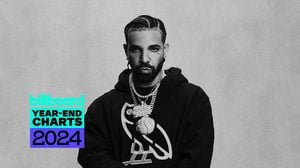Germany witnessed significant political upheaval following the 2025 Federal Election, held on February 23. This election was marked by record lows for the Social Democratic Party (SPD), which suffered its worst election result since the late 19th century, securing just over 16 percent of the vote. One of the highest-profile casualties was Chancellor Olaf Scholz, whose leadership will likely face intense scrutiny as the SPD grapples with this electoral debacle.
The results showed strong support for the conservative Union party (CDU/CSU), which was projected to lead with between 28 and 32 percent of the votes, followed closely by the far-right Alternative for Germany (AfD) at 20-21 percent. Meanwhile, other parties such as the Greens and the Free Democratic Party (FDP) struggled, with the Greens projected to gather only 12-14 percent and the FDP hovering below the necessary 5 percent threshold for parliamentary representation.
It was clear leading up to the election, as reported, there had been minimal shifts in polling numbers. This static dynamic suggested the electorate’s growing discontent with the existing government, particularly the recent performance of the SPD. Scholz's decision to run again, even with his party’s falling popularity, has drawn criticism, with many insiders echoing the desire for Boris Pistorius, the popular Defense Minister, to step up as the party’s new leader.
Reflecting on the results at the SPD election night gathering, party chairman Lars Klingbeil declared, "Dieses Ergebnis ist eine Zäser. Dieses Ergebnis wird Umbrüche erfordern in der SPD," indicating the necessity for sweeping changes and restructuring within the party. Klingbeil stressed the urgency of introducing new personnel and programmes to rebuild the SPD as the ‘people’s party of the left,’ urging immediate action on this front.
Pistorius himself, who has been viewed as a potential successor to Scholz, remained non-committal about his ambitions during the immediate aftermath of the election, stating, "Es sei nicht der Moment, um über Personal in der eigenen Partei zu spekulieren." His cautious approach reflects the political sensitivity necessary during this turbulent period.
The party's internal discussions are likely to intensify as they seek to define their direction, with expectations of coalition negotiations looming. While the new Bundestag is set to be smaller than before, capped at 630 members due to recent electoral reforms, this change presents both challenges and opportunities for recalibrated political alignments.
To provide some perspective on the scale of this shift, one cannot overlook the historical significance. The last time SPD faced such low vote counts was during the Kaiser era, over 138 years ago, pointing toward potential long-term ramifications for social democracy within Germany's political fabric.
Speculation about potential new leadership is rampant as prominent party figures discuss the need for rejuvenation. Klingbeil hinted at plans for introducing younger representatives to the helm of the SPD, reaffirming, "Der Generationswechsel in der SPD muss eingeleitet werden," underscoring the party's strategic pivot to refresh its image and output.
With Friedrich Merz as the CDU's new chancellor candidate, the ball now lies with the Union and its capacity to forge coalitions. "Wir waren immer gesprächsbereit, wir sind es," remarked Pistorius, indicating the SPD's readiness for negotiations but reiterates the responsibility lies with the CDU to initiate these discussions.
Both the SPD and the CDU/CSU face time-sensitive decisions as the shared goal remains the establishment of a functional government. Preliminary estimates suggest potential coalitions with either the Greens or the SPD, both of which would necessitate careful navigation of policy agreements.
The next months will prove pivotal for the SPD as it recalibrates post-election. They will need to address both the leadership question and concrete policy reformation to restore confidence among its voter base and perhaps resurrect its position as the leading left-wing party. The question remains: can the SPD recover from this historical setback, and will Boris Pistorius hold the keys to its revival?
This evolution will be carefully monitored not only by political analysts but by the general populace, eager for change and seeking reassurance from their leaders as Germany embarks on this uncertain yet pivotal path forward.



